Disclosure: This article contains affiliate links. We may earn a commission from purchases at no extra cost to you, which helps our travel content.
The ancient stones of Cordoba tell stories that span millennia, but it's after sunset when this Andalusian gem truly reveals its soul. I've always believed that a city's heartbeat is best felt after dark, and nowhere proves this theory better than Cordoba. After fifteen years of exploring Spain's hidden corners with my daughter Amira (now fourteen and already a flamenco aficionado), I've developed a sixth sense for spotting the difference between tourist traps and authentic cultural experiences. During our recent summer weekend escape from Sheffield's perpetual drizzle, Cordoba welcomed us with open arms, scorching days, and—most importantly—nights alive with passion, rhythm, and flavor. If you've been told that nightlife and family travel don't mix, allow me to shatter that myth as thoroughly as a flamenco dancer's heel strike on hardwood.
Finding Your Flamenco Rhythm
There's something about flamenco that transcends language barriers—it speaks directly to that primal part of us that responds to raw emotion. In Cordoba, flamenco isn't just a performance; it's a conversation between artist and audience, between past and present.
My first rule of flamenco-hunting: avoid anything advertised on glossy hotel pamphlets. The most authentic experiences happen in small venues called tablaos or peñas flamencas—cultural associations where locals gather to preserve their heritage. Arte y Sabores de Córdoba became our home base, a venue where the intimate setting means you're close enough to see the sweat on the dancers' brows and the calluses on the guitarists' fingers.
'The difference between tourist flamenco and real flamenco,' explained Miguel, a silver-haired guitarist I chatted with between sets, 'is like the difference between instant coffee and the perfect espresso.'
At Tablao El Cardenal, we witnessed a performance so intense that Amira gripped my hand during the soleá—the most serious and profound flamenco style. The dancer's face transformed with each emotional shift, her movements alternating between controlled precision and explosive power. It reminded me of coaching athletes through those moments when technique and emotion merge into something transcendent.
For those serious about capturing these magical moments, leave your smartphone in your pocket and bring a proper mirrorless camera with good low-light capabilities. Just remember to check photography policies beforehand—some venues prohibit photos to maintain the integrity of the experience.
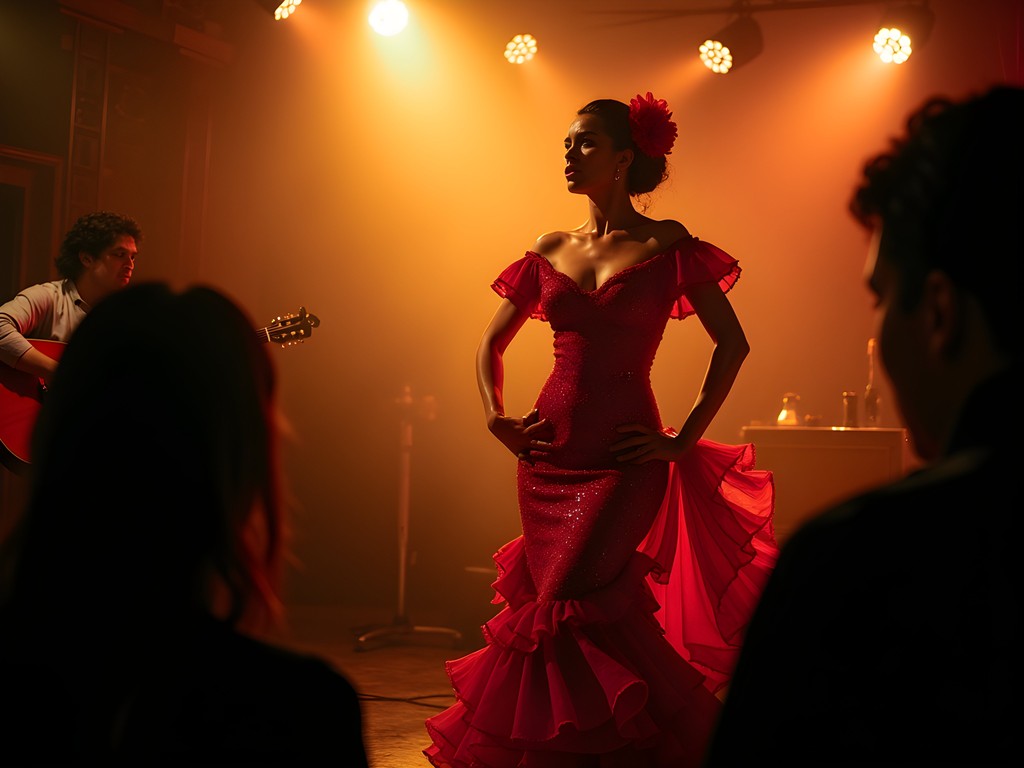
💡 Pro Tips
- Book flamenco shows in advance, especially during summer months when venues fill quickly
- Eat dinner before most flamenco shows, as they typically start around 10:30 PM
- Look for venues where locals make up most of the audience—this usually guarantees authenticity
Tapas Crawling: A Family Sport
In Sheffield, dinner with a teenager means negotiating between healthy options and whatever's trending on TikTok. In Cordoba, the tapas scene transformed Amira into a culinary adventurer willing to try anything—well, almost anything.
'Mom, I'm drawing the line at snails,' she declared at Taberna La Sacristía, while happily devouring salmorejo (Cordoba's creamier cousin to gazpacho) and berenjenas con miel (crispy eggplant drizzled with honey).
The beauty of tapas is that it turns dining into a progressive experience—a culinary relay race where each venue passes the baton to the next. We developed a system: three tapas per place, one familiar, one new, and one wild card. This approach kept us moving through the labyrinthine streets of the old Jewish Quarter, discovering hidden courtyards and local haunts.
The key to a successful tapas crawl with kids or teens is pacing. We'd start around 9:00 PM (early by Spanish standards) at Casa Pepe de la Judería, where the terrace offers breathing room and the staff treats children like valued guests rather than inconveniences. By midnight, we'd worked our way to Bodegas Mezquita, where the fusion of traditional Andalusian and Moorish flavors mirrors Cordoba's multicultural history.
For keeping track of our favorite discoveries, I've found the travel journal invaluable—its pocket-sized format and blank pages are perfect for jotting down dish names, drawing quick maps, or even collecting signatures from memorable waiters and chefs.
The tapas scene here operates on its own rhythm—like any good team sport, you need to understand the flow of play. Arrive too early (before 9 PM) and you'll be dining alone; too late and you'll struggle to find space. The sweet spot is around 10 PM when families and friends begin their nightly ritual of food, conversation, and community.
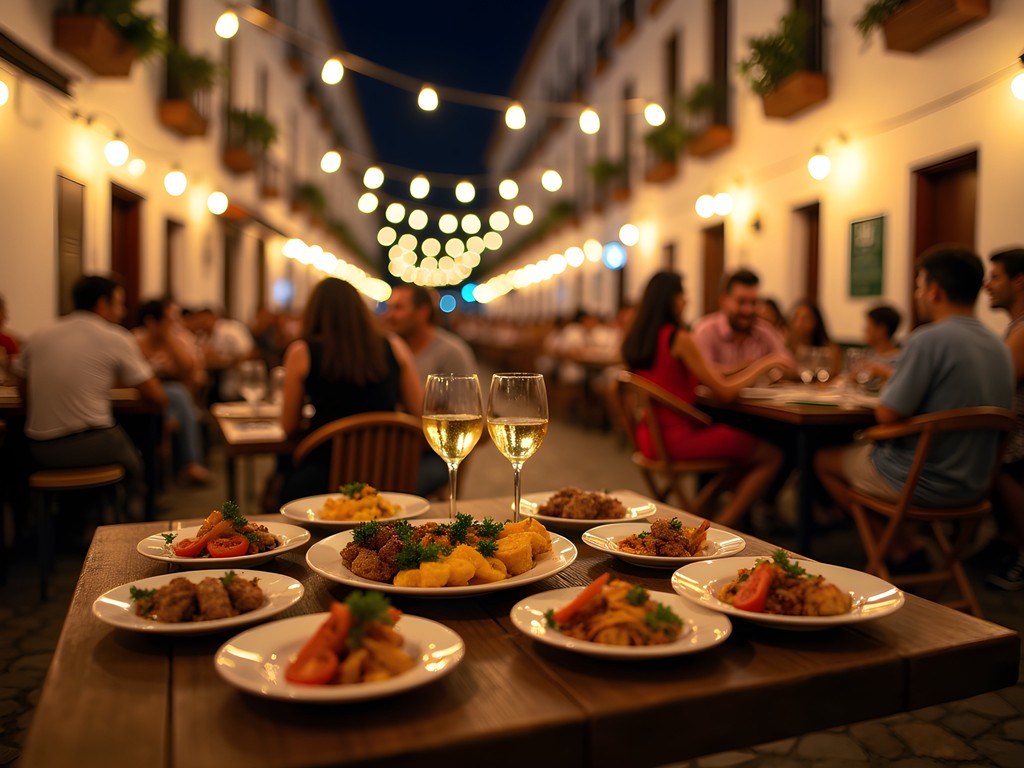
💡 Pro Tips
- Order one round of drinks and tapas before moving to the next location—this is how locals do it
- Look for places where menus are handwritten daily—they're working with the freshest ingredients
- Don't be afraid to bring children—Spanish culture embraces kids in all settings, even late at night
Courtyard Concerts: Cordoba's Hidden Music Scene
My ex-husband Karim would lose his mind over Cordoba's underground music scene. His record shop in Sheffield specializes in global sounds, and I made sure to document every musical discovery for him to track down vinyl versions later.
Cordoba's famous patios (interior courtyards) aren't just for the May festival—they become impromptu concert venues throughout summer. These intimate gatherings blend flamenco with jazz, classical Arabic influences, and even electronic beats in settings so magical they feel dreamlike.
'It's like being invited into someone's living room, if their living room was a 500-year-old architectural masterpiece,' I told Amira as we settled into cushions at Patio de los Naranjos for a fusion performance.
Finding these events requires detective work and local connections. Our breakthrough came through Rafa, the barista at our morning coffee spot, who noticed me admiring his vintage Miles Davis t-shirt. After a lengthy conversation about jazz (using my rudimentary Spanish and his excellent English), he sketched a map to a courtyard concert happening that evening.
'Tell them Rafa sent you,' he winked, 'and try the homemade vermouth.'
This led us to an unmarked wooden door in the Alcázar Viejo district. Beyond it lay a courtyard draped in jasmine and lit by paper lanterns, where a quartet blended traditional Spanish guitar with North African percussion. The audience—maybe thirty people—sat on floor cushions, sipping drinks and passing small plates of food.
For these magical evenings, I always pack my portable bluetooth speaker for impromptu post-concert listening sessions back at our accommodation. Amira and I often find ourselves inspired to explore similar music after these experiences, and having quality sound makes all the difference when sharing discoveries.
The best part? These events rarely start before 11 PM, but they're often multi-generational. Seeing Spanish grandmothers tapping their feet alongside teenagers with green hair reminded me why I've always rejected the notion that nightlife and family experiences must be separate worlds.
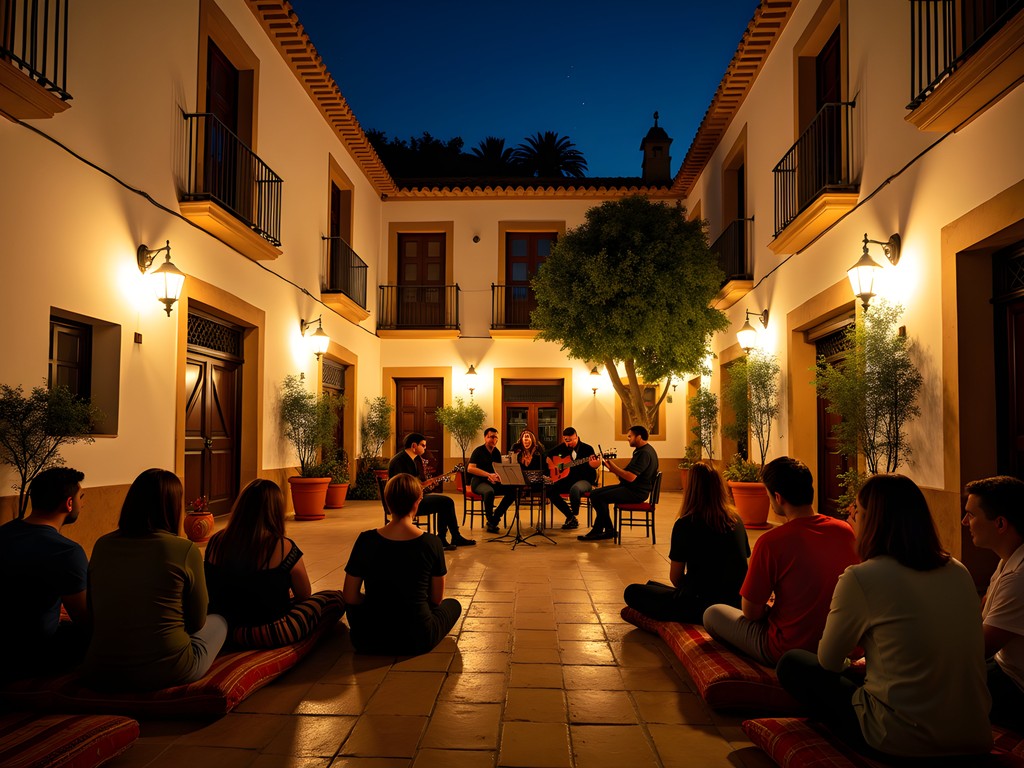
💡 Pro Tips
- Make friends with local baristas, bartenders, and shop owners—they're your gateway to underground events
- Look for handwritten posters in local cafés and bars advertising concerts
- Bring cash for these events as many don't accept cards
Late-Night Remedies: Cordoba's Alternative Wellness Scene
One unexpected discovery during our Cordoba adventure was the city's thriving alternative wellness scene that comes alive after hours. As someone who's explored holistic practices across continents (an occupational hazard of being a sports coach constantly seeking recovery techniques), I was delighted to find that Cordoba maintains ancient healing traditions alongside its historical monuments.
After particularly vigorous nights of dancing, my perpetually tight hamstrings were screaming for attention. A local recommendation led us to Hammam Al Ándalus, a reconstructed Arab bath house offering midnight sessions that blend aromatherapy with traditional massage techniques. The contrast between the bustling streets and the candlelit tranquility inside these baths creates a transitional space between day and night.
'This feels like time travel,' whispered Amira as we floated between thermal pools of varying temperatures. The ritual of moving between hot, warm, and cold waters dates back to Roman and Moorish times—a physical reset button that prepares you for another day of exploration.
For those who prefer herbal remedies, the tiny apothecary Hierbabuena stays open until 1 AM during summer months. The owner, Elena, is a fourth-generation herbalist who prescribed me a blend of local herbs for sleep and recovery. I now travel with a insulated water bottle specifically to brew these herbal infusions in hotel rooms—much better than relying on disposable plastic bottles.
'In Andalusia, we understand that wellness doesn't follow office hours,' Elena explained while measuring dried lemon verbena and lavender. 'Sometimes the body needs attention at midnight, not 9 AM.'
This philosophy—that self-care can be integrated into nightlife rather than scheduled for the morning after—feels revolutionary in our productivity-obsessed culture. It's a reminder that balance doesn't mean segregating fun and wellness into separate compartments of life.
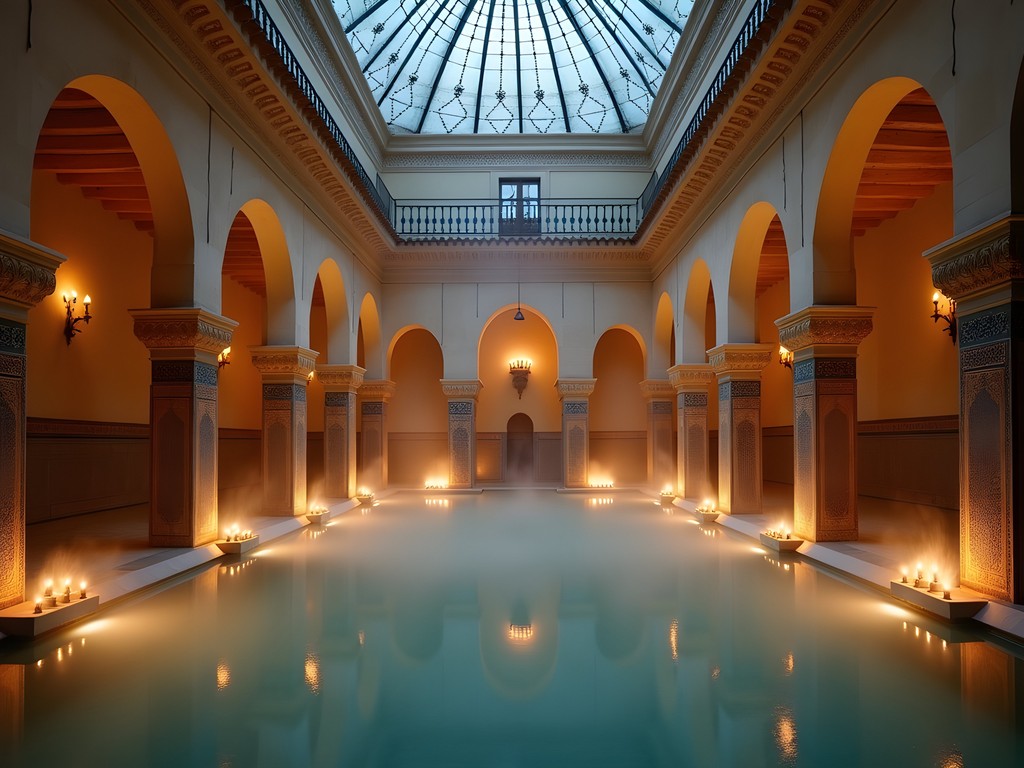
💡 Pro Tips
- Book hammam experiences at least one day in advance, especially for evening slots
- Bring a lightweight cotton robe if you're modest—some wellness spaces have different expectations about nudity than you might be used to
- Ask locals about seasonal herbs—what's available changes throughout the year
Dawn Patrol: Bridges Between Night and Day
The true magic of Cordoba's nightlife isn't found in any single venue but in the transitions—those liminal spaces between evening and dawn when the city transforms once again. Some of our most profound moments happened during these in-between hours.
The Roman Bridge (Puente Romano) spanning the Guadalquivir River becomes a different entity at 5 AM. As night owls make their way home and early risers begin their days, there's a beautiful collision of energies. Street performers often gather here at dawn—not for tourists, but for themselves and the city.
On our final morning, we joined a small crowd watching an elderly man play haunting melodies on a handmade string instrument. The rising sun gilded the Mezquita-Cathedral behind him, creating a backdrop that no stage designer could replicate. When I slipped a few euros into his case, he smiled and said something that Amira later translated:
'He said music at dawn is the purest because it hasn't been corrupted by the day's concerns yet.'
For capturing these magical dawn moments, I rely on my travel tripod which lets me take long-exposure shots of the city awakening without carrying bulky equipment. Its flexible legs can wrap around bridge railings or balance on uneven cobblestones—perfect for spontaneous photography.
The bakeries opening their doors provide another sensory bridge between night and day. At Pastelería Ntra. Sra. de los Ángeles, we joined locals ending their nights and beginning their days over churros and chocolate—a ritual that blurs the distinction between late-night indulgence and breakfast nourishment.
These dawn experiences taught Amira an important lesson I've tried to instill since she was small: that arbitrary divisions between 'appropriate times' for experiences limit our understanding of places and cultures. Some cities, like some people, reveal their truest selves when most of the world is sleeping.
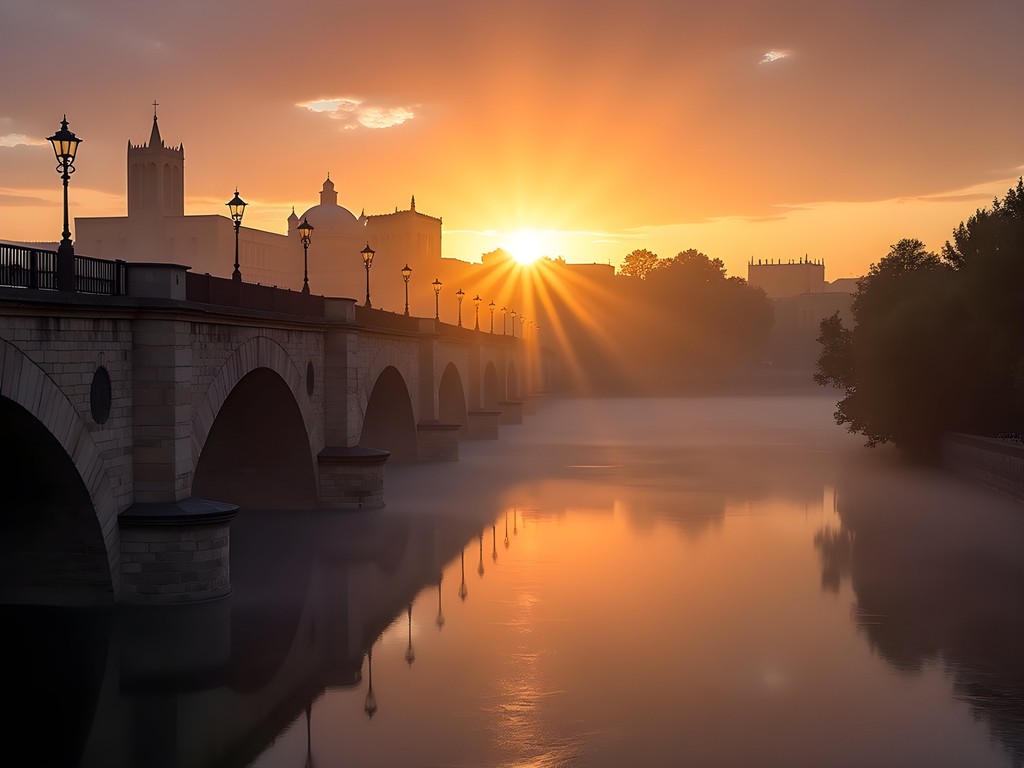
💡 Pro Tips
- Pack a light jacket even in summer—dawn temperatures can drop surprisingly low
- Carry cash for early morning street vendors and performers
- Don't plan early morning activities after a late night out—allow yourself to flow with the city's natural rhythm
Final Thoughts
Cordoba after dark isn't just about staying up late—it's about experiencing the city's soul when it speaks most honestly. From the passionate stomps of flamenco dancers to the gentle steam rising from ancient baths, from tapas shared with newfound friends to dawn breaking over the Guadalquivir—these nocturnal rhythms reveal Andalusia's beating heart.
What I hope Amira takes from our nighttime adventures isn't just memories of specific places, but the understanding that authentic cultural experiences don't conform to convenient schedules or tourist expectations. They happen when communities come together to celebrate their heritage, share their stories, and welcome curious visitors into their midst.
So when planning your Cordoba escape, resist the urge to retreat to your hotel after dinner. Instead, take a pre-trip nap, adjust your expectations about appropriate bedtimes, and step into the warm Andalusian night. The city is waiting to reveal its secrets—if you're willing to stay awake for them.
✨ Key Takeaways
- Authentic flamenco experiences happen in small venues where locals gather, not in tourist showcases
- Cordoba's tapas scene is family-friendly and operates on a later schedule than many visitors expect
- Hidden courtyard concerts provide intimate musical experiences that blend traditional and contemporary sounds
- The transitions between night and day offer unique perspectives on the city's character and culture
📋 Practical Information
Best Time to Visit
Late spring (May-June) or early fall (September-October) for milder temperatures; summer (July-August) for maximum nightlife but intense heat
Budget Estimate
€75-150 per day including accommodations, food, entertainment and transportation
Recommended Duration
Minimum 2-3 nights to experience the nightlife properly
Difficulty Level
Beginner
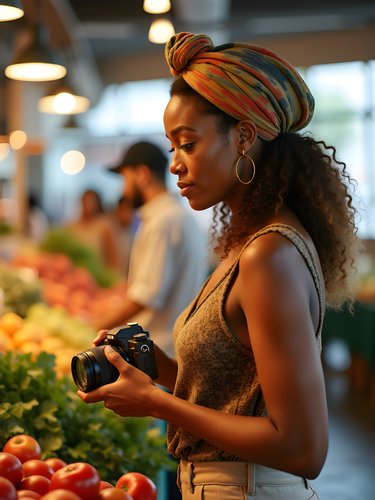
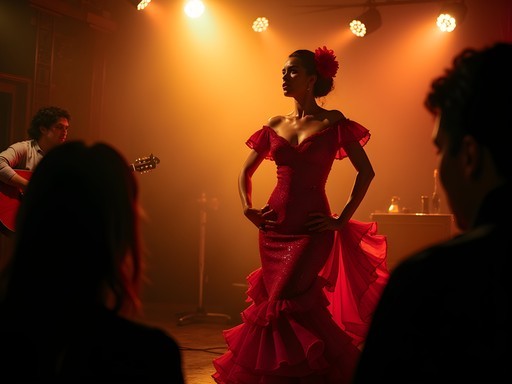
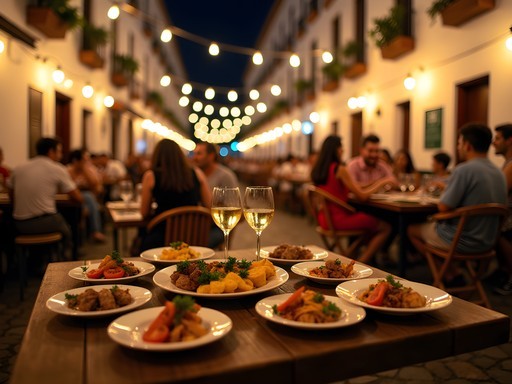
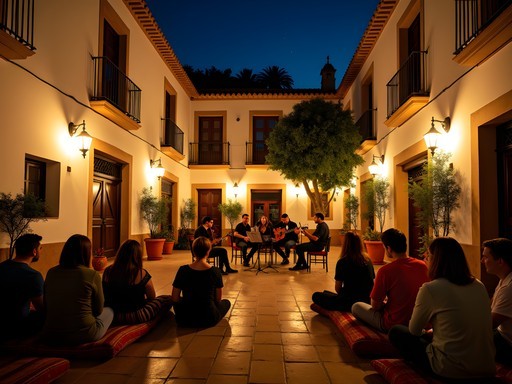
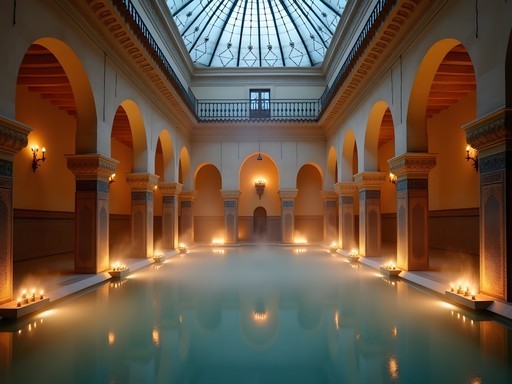
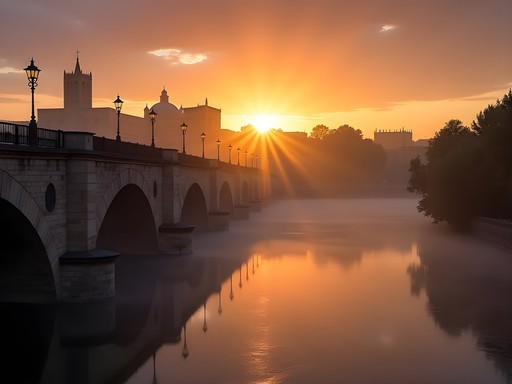


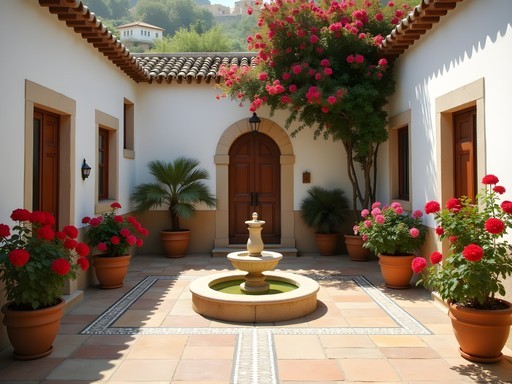
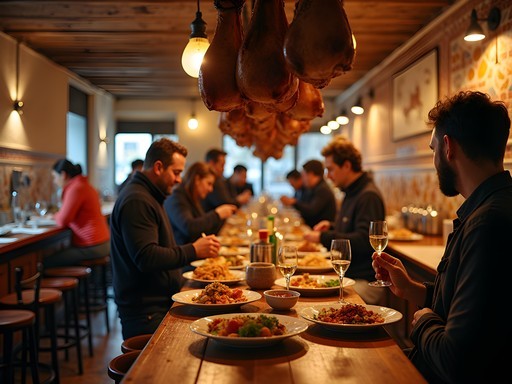
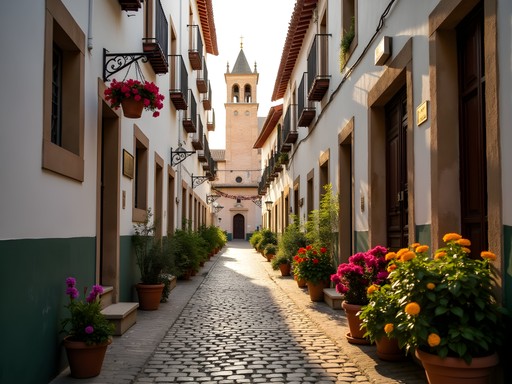
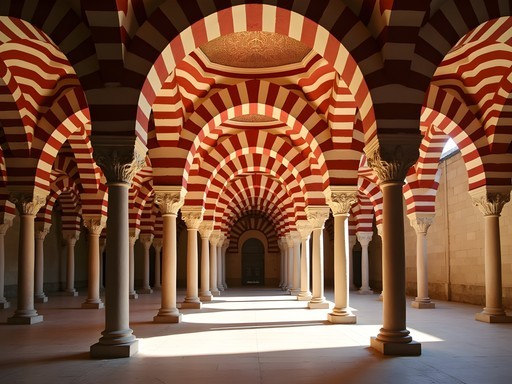
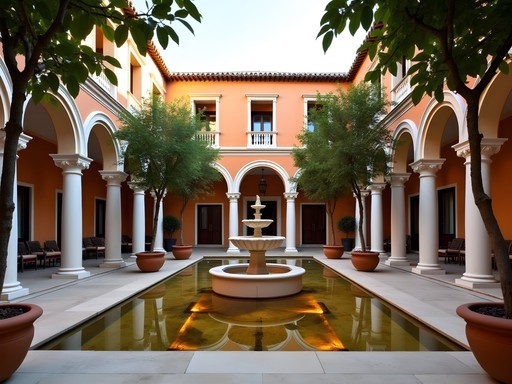
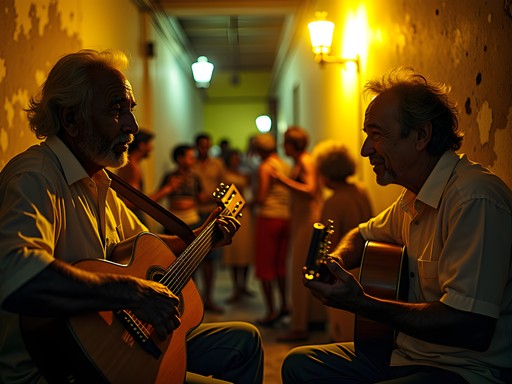
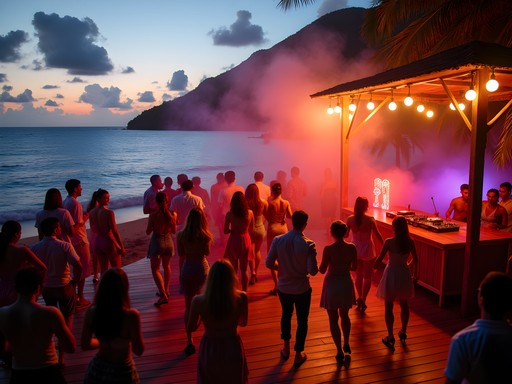
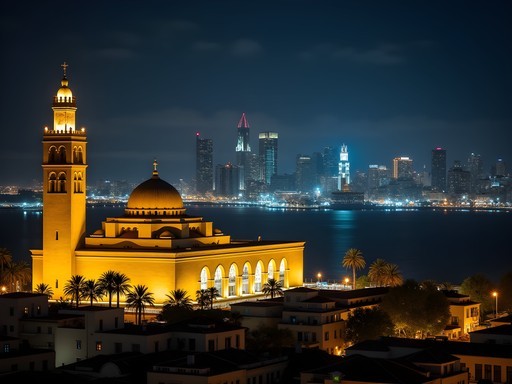
Comments
escapeperson
This post brings back amazing memories! The tapas crawl culture in Cordoba is something special - it really IS a family sport like you said. We watched grandparents, parents, and kids all hopping from bar to bar together on a Tuesday night. The energy is just infectious. Pro tip: follow the locals to the bars in San Basilio neighborhood, away from the main tourist areas. That's where we had the best salmorejo of our entire Andalusia trip!
travelqueen
Is the tapas scene good for vegetarians? My husband doesn't eat meat and we're worried about options.
Marco Suzuki
Absolutely. Andalusia has excellent vegetarian tapas - berenjenas con miel, pimientos de padrón, patatas bravas, various cheese plates. Most bars have 5-6 solid veggie options.
sunsetfan
Love your photos! The lighting is perfect.
escapeguide
YES!! I spent three nights in Cordoba last spring and the flamenco shows absolutely blew me away. We found this tiny venue near the Mezquita where locals actually go - not touristy at all. The guitarist was phenomenal and they served incredible montaditos between sets. Lucy, your description of the courtyard concerts is spot on. That's where the magic really happens!
travelqueen
Do you remember the name of that venue?? Going in August!
escapeguide
It was called Tablao El Cardenal - tiny place with maybe 40 seats. Get there early!
smartdiver
The flamenco scene there is incredible!
Casey Andersson
Lucy, this brings back such memories! That courtyard concert scene is no joke - I stumbled into one near the Mezquita around midnight and it felt like discovering a secret world. For anyone doing the tapas crawl, don't skip Bodegas Mezquita Céspedes. Tiny place, locals packed shoulder to shoulder, and their salmorejo is legitimately life-changing. The owner, Rafael, will tell you stories about his grandmother's recipes if you ask. Also, pro tip: eat the free tapa that comes with your drink BEFORE ordering more food - sometimes it's so good you don't need anything else!
blueseeker
Adding this to my list right now!
blueseeker
This sounds amazing! Which flamenco venue did you like best? Going in September and want to book ahead.
Casey Andersson
Not Lucy, but I was just in Cordoba last spring! Tablao El Cardenal is intimate and authentic - about 20 people max. The guitarist there has been playing for 40 years and you can feel every note in your chest. Book the 10pm show, it's more locals than tourists.
blueseeker
Perfect, thanks! Just what I was looking for
journeymaster
Those flamenco photos are incredible! What camera settings did you use in such low light?
Lucy Mohamed
Thank you! I used a prime lens with f/1.8 aperture and bumped up the ISO. The key is to capture during the dramatic moments when the dancers pause!
redmate
Just got back from Andalusia and completely agree with everything in this post! Cordoba's nightlife was the highlight of our trip. We found this tiny place called Taberna El Gallo where the owner started playing guitar at midnight and everyone joined in singing. Pure magic! The tapas there were incredible too - try the salmorejo, it's like gazpacho but creamier and so refreshing on hot nights. Lucy, your section about the courtyard concerts was our guide - we found one in a hidden patio that wasn't advertised anywhere. Just followed the music like you suggested!
journeymaster
How late do these places usually stay open? Planning a trip and wondering about timing.
redmate
Most tapas bars are lively until at least 1am, but the real flamenco often doesn't even start until midnight! Spaniards eat and party late - embrace the siesta so you can enjoy the nights!
Bryce Diaz
Lucy, your piece on Cordoba's nightlife is spot-on! I was there solo last spring and discovered the joy of the 'sobremesa' - that lingering conversation after meals that can stretch for hours. One tip for your readers: invest in a good pocket phrasebook before hitting the tapas bars. The locals really appreciated my terrible Spanish attempts, and it led to being invited to a family gathering where the grandmother taught me the proper way to clap during a bulerías! The late-night remedies section made me laugh - that tea with honey saved me after a night of too much local wine. For those heading there, don't miss the bars along Calle Romero Barros - they're less crowded than the ones near the Mezquita but just as authentic.
Venture X
Premium card with 2X miles, $300 travel credit, Priority Pass